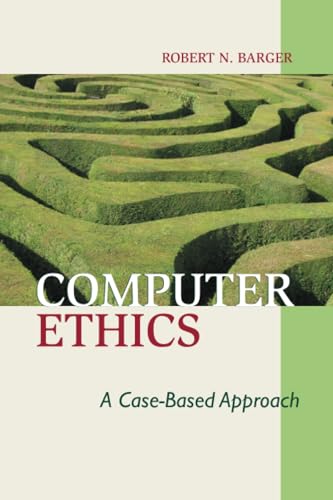Computer Ethics: A Case-based Approach
Barger, Robert N.
ISBN 10:
0521709148 ISBN 13:
9780521709149
Published by Cambridge University Press (edition 1), 2008
Language: English
Used
Condition: Good
Soft cover
Sold by BooksRun, Philadelphia, PA, U.S.A.
AbeBooks Seller since February 2, 2016
Used - Soft cover
Condition: Good
Price:
US$ 3.53
Convert Currency
Free
shipping within U.S.A.
Destination, rates & speeds
Quantity: 1 available
Add to basket